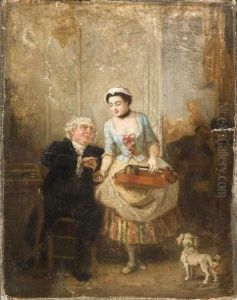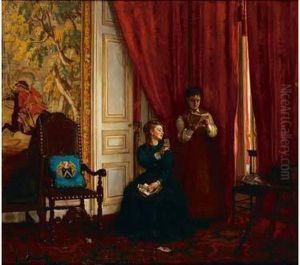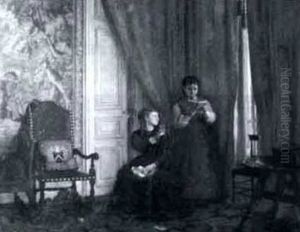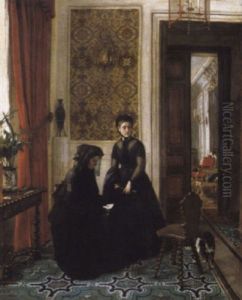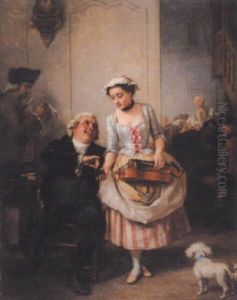Eugene Delfosse Paintings
Eugene Delfosse was a notable 19th-century Belgian painter, born in 1837 and passing away in 1900. His work is often characterized by its detailed realism and the delicate treatment of light, which he used to bring depth and emotion to his subjects. Delfosse was trained in the fine arts at the Académie Royale des Beaux-Arts in Brussels, a prestigious institution that nurtured many talented artists of his time. His education there laid the foundation for his artistic career, emphasizing classical techniques and the study of the human form, which would become evident in his later works.
Delfosse's oeuvre includes portraits, landscapes, and historical scenes, showcasing his versatility and mastery over different genres. He was particularly admired for his ability to capture the essence of his subjects, whether it was the dignified atmosphere of a historical event or the tranquil beauty of the Belgian countryside. His landscapes, often suffused with a soft, natural light, reveal his profound appreciation for nature and his skill in rendering its myriad colors and textures.
Throughout his career, Delfosse exhibited his work in various salons and galleries, gaining recognition and accolades from both critics and the public. His paintings were celebrated for their technical precision, as well as their emotional depth, reflecting the artist's keen observation and sensitivity to his surroundings. Despite his success, Delfosse remained dedicated to his craft, continually refining his technique and exploring new subjects.
After his death in 1900, Eugene Delfosse's contributions to Belgian art were remembered and cherished. His works are now part of several museum collections, where they continue to be studied and admired for their beauty and historical value. Delfosse's legacy lives on as a testament to the enduring appeal of traditional realism in art, and his paintings continue to inspire both artists and art lovers around the world.
